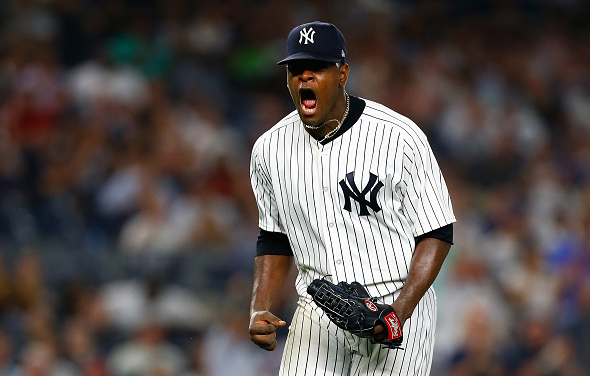In Major League Baseball history, there are only 3 players who have made their 3,000th career hit a home run. First was Wade Boggs in 1999, a Hall of Famer who was known on the field as one of the greatest hitters of the 1980’s and 1990’s. Derek Jeter came next in 2011, perhaps the greatest all-around shortstop in baseball history who will surely be a first-ballot HOFer when his time comes. On June 19th, 2015, Alex Rodriguez joined his fellow third baseman Boggs and former teammate Jeter on this list. As one of only 3 players ever with 600 homers and 3,000 hits (Willie Mays and Hank Aaron), A-Rod should easily be immortalized in baseball lore, right?
Not so fast.
While his stats are wildly impressive, Rodriguez’s prolonged melodrama with performance-enhancing drugs has turned fans and Hall voters alike sour to his on-field production. As he turns 40 on July 27th and his baseball clock ticks down to 0, we can only speculate what will happen to his legacy and how his untimely downfall will decide his fate down the line. It’s easy to write him off as a cheater just like the voters have done to Jose Canseco and Mark McGwire, but it’s imperative in a strange case like A-Rod’s to dig a little deeper.
Take the case of McGwire for example. He admitted to using steroids on and off for a decade, starting in the 1989-1990 offseason. That next season, he hit his second-highest home run total of his career until that point with 39. He also admitted to using them in the famed 1998 season, where he battled Sosa for the single-season home run record and won with 70 dingers (Sammy Sosa finished with 66).
McGwire also stated he used them the next year, when he mashed 65 round-trippers, and in 1996-1997 when he hit 110 homers over 2 seasons. Other than these tainted years, his power numbers mirror those of a typical power hitter; not a great average, but between 30-40 home runs. It’s clear that PED’s significantly improved McGwire’s home run prowess, even if he claims that he strictly took them for health purposes.
Canseco is best known as the main whistle-blower of the steroid era, ratting out dozens of former and current players, but he did use them himself, and hit 462 home runs over a 17-year career. He admitted to using them for the majority of his career and it is clear when he was on or off the juice based on his stats. In 1988 and 1991 he hit 42 and 44 home runs, respectively, which led the American League. Canseco clubbed 46 dingers in 1998, but didn’t surpass 40 other than those three scattered years.
Just like McGwire, Canseco’s numbers as a whole represent a run-of-the-mill slugger, with a .266 career batting average. PEDs definitely elevated his reputation as a player much higher than it should have been.
Rodriguez’s case is a little different. He allegedly used PEDs from 2001-2003, and again from late 2010-2012 through the Biogenesis lab run by Anthony Bosch. It clearly didn’t help him with the Yankees; he only topped out at 18 homers in that span. From ’01-’03, however, he hit 156 homers in three years. That’s astounding, but it’s not a huge spike from his “clean” numbers like McGwire or Canseco. In a three-year period where he supposedly didn’t juice up, from 2005-2007, he hit 137 home runs, which isn’t far off from his ‘roid days.
Rodriguez’s average has also had better three year stretches while he’s been clean than while on PEDs (exhibit A: 1996-1998 with Seattle). While they may have helped his numbers a little bit, performance-enhancing drugs just didn’t have the same effect on Rodriguez as they did on some other players.
A wise man once told me, “PEDs are performance-enhancing drugs, not performance-creating drugs.” It’s evident that A-Rod’s talent is there even without steroids, so it is almost unfair to categorize him as a slugger who went down like McGwire, Sosa, or Canseco. Rodriguez is truly an immensely talented baseball player that got caught up in his surroundings at the height of the Steroid Era. To say that A-Rod wouldn’t have had the career he’s had without steroids is almost unfathomable; some of his best years were clearly juice-free, like 2005 when he hit .321 with 48 HRs or his MVP season in 2007. The Hall of Fame’s main mission is to “honor excellence within the game”, and Alex Rodriguez certainly was excellent, regardless of steroids. For that, he should (at least) be given a fair shake by the voters.






